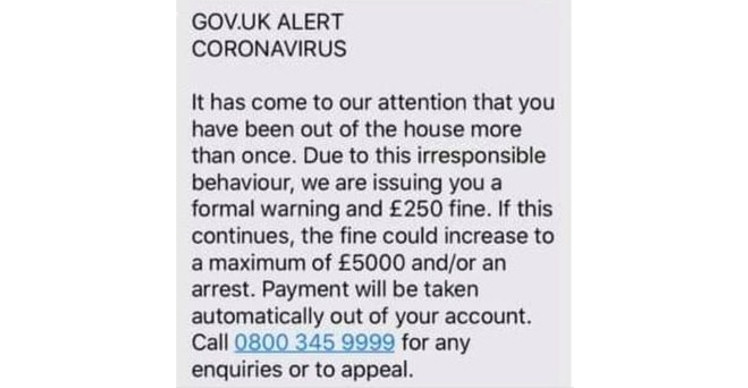As criminals seek to capitalise on the Covid-19 pandemic, we are being urged to be more vigilant against fraud, particularly about sharing financial and personal information.

Criminals are experts at impersonating people, organisations and the police. They spend hours researching you for their scams, hoping you’ll let your guard down for just a moment.
Stop: Taking a moment to stop and think before parting with your money or information could keep you safe.
Challenge: Could it be fake? It’s ok to reject, refuse or ignore any requests. Only criminals will try to rush or panic you.
Protect: Contact your bank immediately if you think you’ve fallen for a scam and report it to Action Fraud*.
Detective Sergeant Jon Cooper said: “Your bank or the police will NEVER ask you to transfer money or move it to a safe account.
“Criminals are targeting people looking to buy medical supplies online, sending emails offering fake medical support and scamming people who may be vulnerable or increasingly isolated at home. These frauds try to lure you in with offers that look too good to be true, such as high return investments and ‘healthcare opportunities’, or make appeals for you to support bogus charities or those who are ill.
“Criminals are also using Government branding to try to trick people, including reports of using HMRC branding to make spurious offers of financial support through unsolicited emails, phone calls and text messages.
This situation is likely to continue, with criminals looking to exploit further consequences of the pandemic, such as exploiting financial concerns to ask for upfront fees for bogus loans, offering high-return investment scams, or targeting pensions.
Huge increases in the number of people working remotely mean that significantly more people will be vulnerable to computer service fraud and mobile phone messaging fraud where criminals will try and convince you to provide access to your computer or divulge your logon details and passwords. It is also anticipated that there will be a surge in phishing scams or calls claiming to be from the police, government departments offering grants, tax rebates, or compensation.
Detective Sergeant Cooper added: “On the back of the Government’s official text message sent to the public, police have had reports of a text scam, which appears to come from the same UK Gov mailer, stating that the recipient has breached regulations and will be sent a fine in the post.
“The Government has only sent one text message to the public regarding new rules about staying at home to prevent the spread of COVID-19. Any others claiming to be from UK Government are false.”
“Criminals are able to use spoofing technology to send texts and emails impersonating organisations that you know and trust. We would remind anyone who receives an unexpected text or email asking for personal or financial details not click on the links or attachments, and don’t respond to any messages that ask for your personal or financial details.”
“Action Fraud protection and police advice remains: Criminals will use any opportunity they can to defraud innocent people out of money. This includes exploiting national emergencies such as the one we find ourselves in at the moment. aGAIN; it’s important you don’t click on the links or attachments in suspicious emails or texts, and never respond to unsolicited messages and calls that ask for your personal or financial details.
“I cannot stress enough that your bank or the police will NEVER ask you to transfer money or move it to a safe account. Don’t click the bait.”





 Shropshire Live is regulated by
Shropshire Live is regulated by 